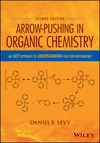For those of you who know me, I rarely post opinions that may create political discourse. I value the diversity of perspectives from my friends and colleagues that span the full political spectrum. With this in mind, I have observed the following policies being either discussed or implemented:
- Increased reliance on fossil fuels – a move that will increase carbon emissions leading to more airborne pollutants
- Review of policies to eliminate lead pipes – a move that will slow the removal of lead from drinking water in communities where lead pipes are still prevalent
- Elimination of supplemental fluoride in water – a move that will result in an increase in childhood cavities and tooth decay
- Undermining of the public’s confidence in use of childhood vaccines – a move that will continue to result in increased epidemics of preventable diseases such as measles above and beyond those recently reported
- Elimination of funding for mRNA-based vaccine research and development programs – a move that will deprive the public from proven technologies useful to fight diseases and epidemics that broadly threaten public health
- Undermining of confidence in existing mRNA-based vaccines – a move that will result in further public distrust of, and poor participation in, vaccination programs that reduce infection severity and minimize reliance on hospital resources
- Imposition of up to 250% tariffs on pharmaceuticals manufactured outside of the United States – a move that will dramatically increase the cost of many medications at a time when the cost of pharmaceuticals remains under pressure from both political parties
- Insistence that all pharmaceuticals are manufactured in the United States – a move that will overload the current manufacturing plant capacity within the United States, force production at more expensive manufacturing facilities and, in all likelihood, result in increased pharmaceutical costs and decreased supply chains
- Reduction of indirect costs allowable in federally funded research grants – a move that will reduce available funds for the training of our next generation of scientists, reduces the sizes of graduate school research groups and, by extension, reduces the number of qualified scientists able to enter the workforce
There are, of course, many more examples that can be listed here. The main point is the following question: HOW ARE THE ABOVE ACTUALLY EXPECTED TO MAKE AMERICA HEALTHY AGAIN???




